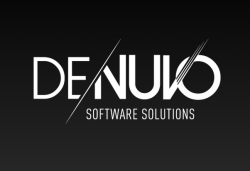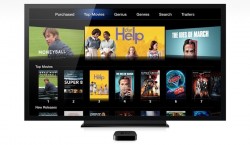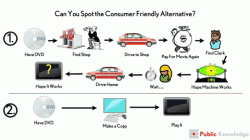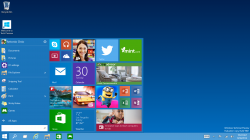A nice and quick one (I always say this, and often don’t deliver), as I’m running a bit behind having just watched the new Hunger Games movie at the cinemas. No spoilers from me, but I thought the sex scene between Katniss and Haymitch was totally out of place, a real departure from the books (yes, I’ve read them!) and exploitative to say the least.
Now onto this week’s news, of which, just like everything I’ve written so far for this WNR, will be completely truthful.
![]()

Staff at Sony Pictures had to resort to pen and paper after servers were hacked – image sources
The big story of the week involves Sony and hacking yet again. The PlayStation Network wasn’t the target of hacking this time round, but it was actually Sony’s film division that was victim to one of the most brazen hacking attempts yet. Not only were sensitive and personal data stolen, so were several digital copies of new and upcoming Sony films, some of which will eventually be leaked onto the usual places.
The newest update from the FBI seems to indicate some kind of undetectable malware was used to infiltrate Sony Pictures computers, and gain access to the data. There’s still no confirmation as to whether the North Koreans were involved, which is one of theories doing the rounds due to Sony’s imminent release of The Interview, which provides a the less than flattering look at North Korea. Would be funny if it was true, and would also provide a great premise for a sequel to yet unreleased comedy.
Something perhaps a little bit harder to crack than the security on Sony’s servers (but not that much harder) is the gaming DRM, Denuvo. As with every single other article talking about Denuvo, I must make it clear that Denuvo isn’t actually a DRM, but rather an anti-tampering system designed to protect existing DRM (such as the Steam or Origin DRM). It’s essentially a DRM for DRM. After months of it being unhacked, due to the use of a 64-bit encryption system, many have started calling it an “infallible” copy protection method. But those that have followed the various stories on DRM I’ve reported here will know that no DRM (or anti-tampering system) is infallible, and it appears Denuvo isn’t any different in this regard. While no working crack has been made available for games that deploy Denuvo, including ‘FIFA 15’ and ‘Dragon Age: Inquisition’, it seem it’s only going to be a matter of time.
While doing the research on this story (yes, I do do research … heh, “do do”), I did find some interesting information on FIFA 15, and how despite being completely protected by Denuvo, its sales compared to FIFA 14 wasn’t higher at all (and was something really low like 5,000 copies). Publishers need to take a good look at the hard data and decide if DRM (or DRM for DRM) is really worth it or not.
If publishers want another reason not to use DRM, just have a look at Apple’s ten-year legal battle over a DRM they no longer even use.
![]()
Both the previous story about Denuvo and this subsequent one are ones that I’m not entirely convinced will hold true given the luxury of time. The Denuvo story because it’s based on information posted by a Chinese warez group, without any other confirmation as to its veracity. This story, about the Xbox One’s total pwnage during Black Friday, comes from a credible source, shopping data analysis firm Infoscout, but I’m not too sure about the methodology used to derive at this conclusion. Based on sales receipts received from its panelists, Infoscout’s data shows that Xbox One sales accounted for 53% of all console sales during the BF sales, that’s more than every other console combined, including the PS4 at only 31%.
It does seem quite high for the Xbox One, given the trend over the last year, but it’s important to remember that the Xbox One also won BF last year, and that the Xbox One had a very generous promotion going on during BF (and still on at the moment), making it cheaper (sometimes a lot cheaper, when bundled games are taking into account) than the PS4. But even if the reported 53% is true, the Xbox One still has a long way to go before it starts to catch the PS4, but this would be a good start.
But in Japan, it seems the Xbox One (just like the 360) is struggling, so much so that the boss of Xbox Japan has just resigned due to the poor sales. It’s a hard ask for any non Japanese console to break into the Japanese market, so I don’t know if a new Xbox Japan boss will be able to turn things around by much.
——
Okay, I’ll try to keep to my word and not make this WNR go any longer, although at 800 words, it’s not exactly the shortest WNR in history (which is almost always the Christmas/New Years edition, coming soon to a screen near you). See you next week.













